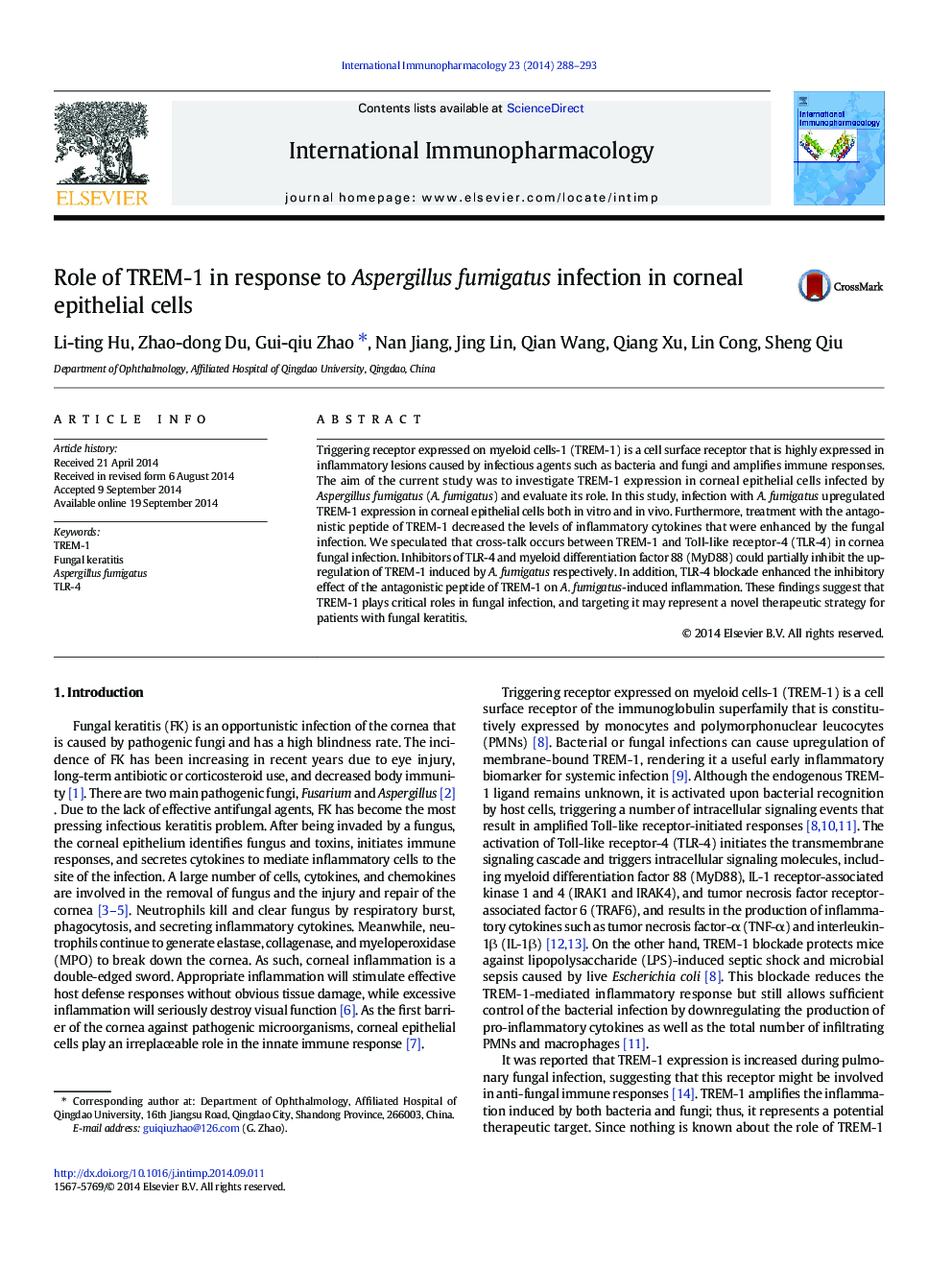| Article ID | Journal | Published Year | Pages | File Type |
|---|---|---|---|---|
| 2540717 | International Immunopharmacology | 2014 | 6 Pages |
•Fungal infection upregulated TREM-1 expression in corneal epithelial cells.•Inhibitor of TREM-1 decreased levels of inflammatory cytokines.•Cross-talk occurs between TREM-1 and TLR-4 in cornea fungal infection.
Triggering receptor expressed on myeloid cells-1 (TREM-1) is a cell surface receptor that is highly expressed in inflammatory lesions caused by infectious agents such as bacteria and fungi and amplifies immune responses. The aim of the current study was to investigate TREM-1 expression in corneal epithelial cells infected by Aspergillus fumigatus (A. fumigatus) and evaluate its role. In this study, infection with A. fumigatus upregulated TREM-1 expression in corneal epithelial cells both in vitro and in vivo. Furthermore, treatment with the antagonistic peptide of TREM-1 decreased the levels of inflammatory cytokines that were enhanced by the fungal infection. We speculated that cross-talk occurs between TREM-1 and Toll-like receptor-4 (TLR-4) in cornea fungal infection. Inhibitors of TLR-4 and myeloid differentiation factor 88 (MyD88) could partially inhibit the upregulation of TREM-1 induced by A. fumigatus respectively. In addition, TLR-4 blockade enhanced the inhibitory effect of the antagonistic peptide of TREM-1 on A. fumigatus-induced inflammation. These findings suggest that TREM-1 plays critical roles in fungal infection, and targeting it may represent a novel therapeutic strategy for patients with fungal keratitis.
